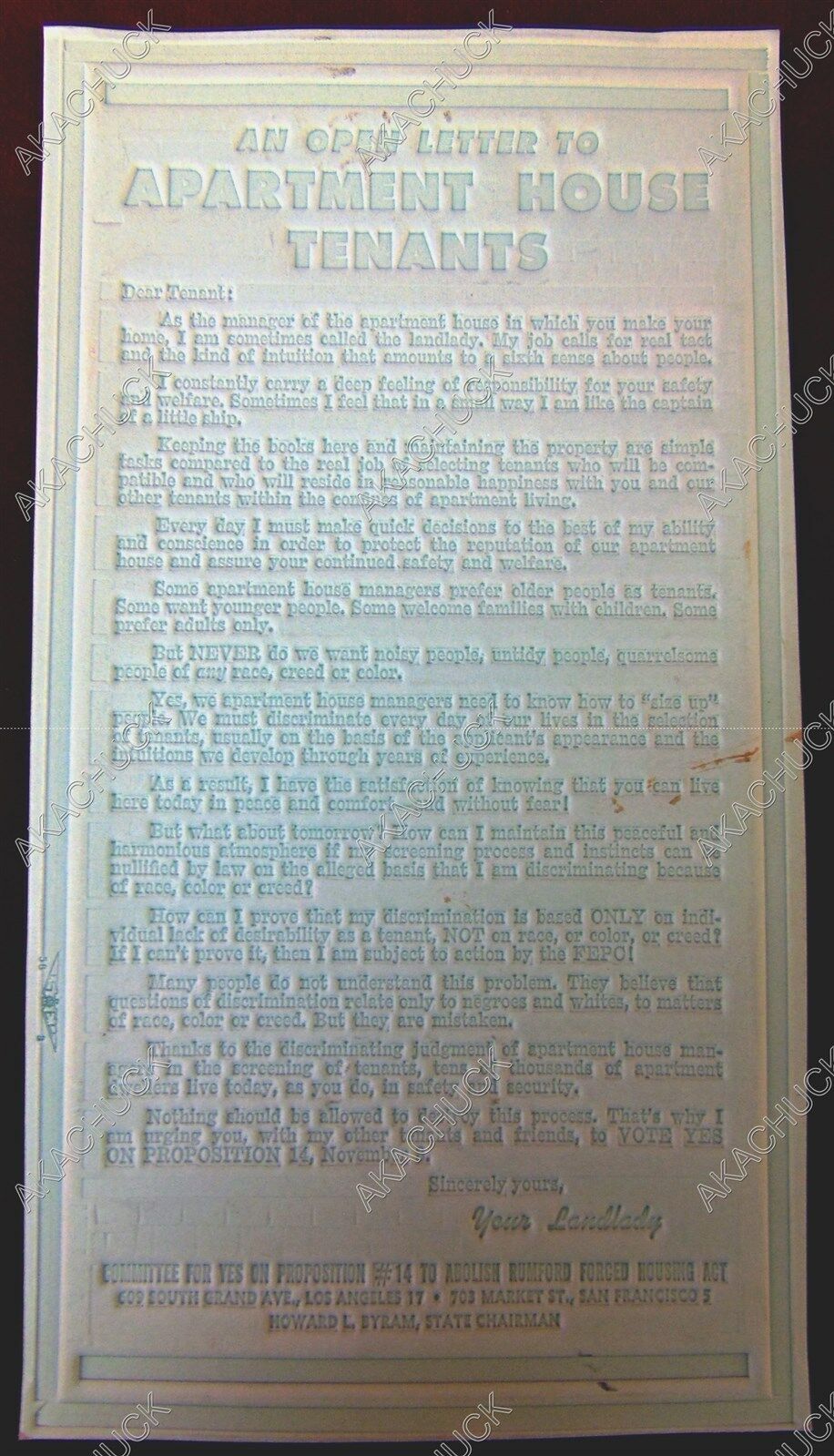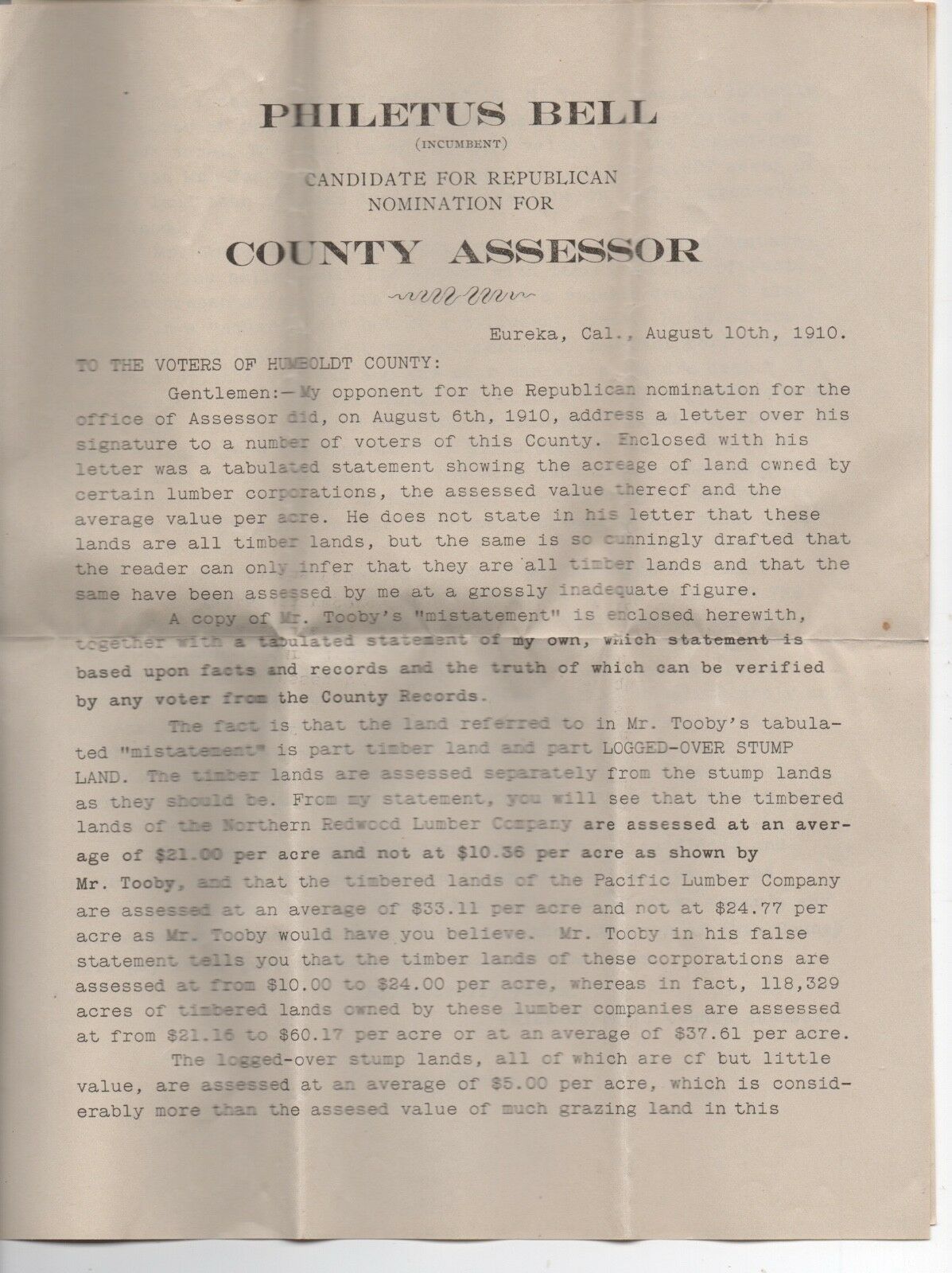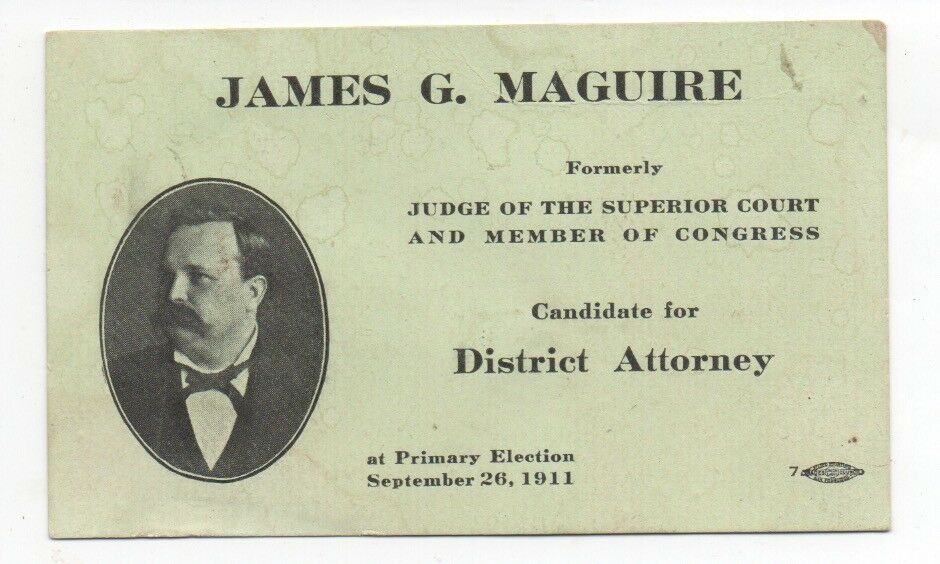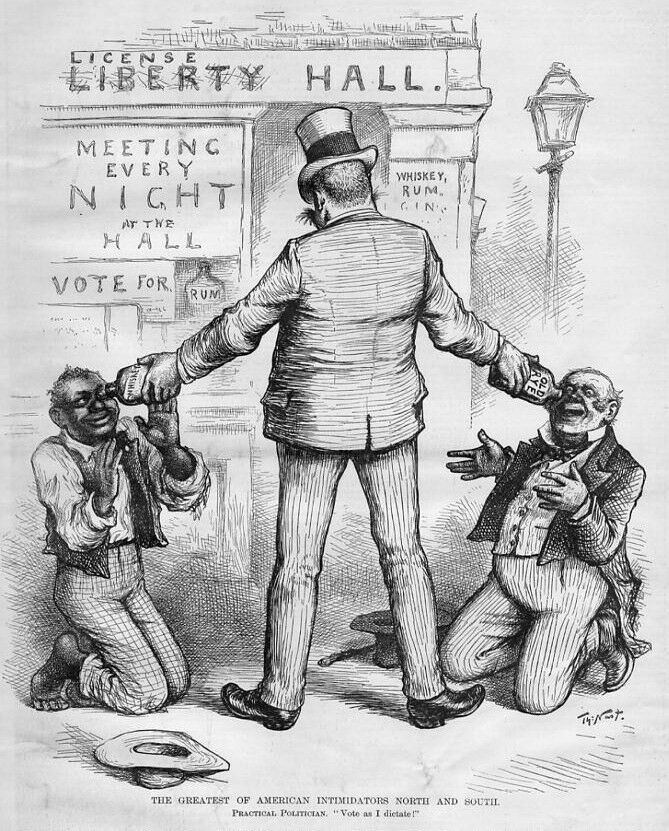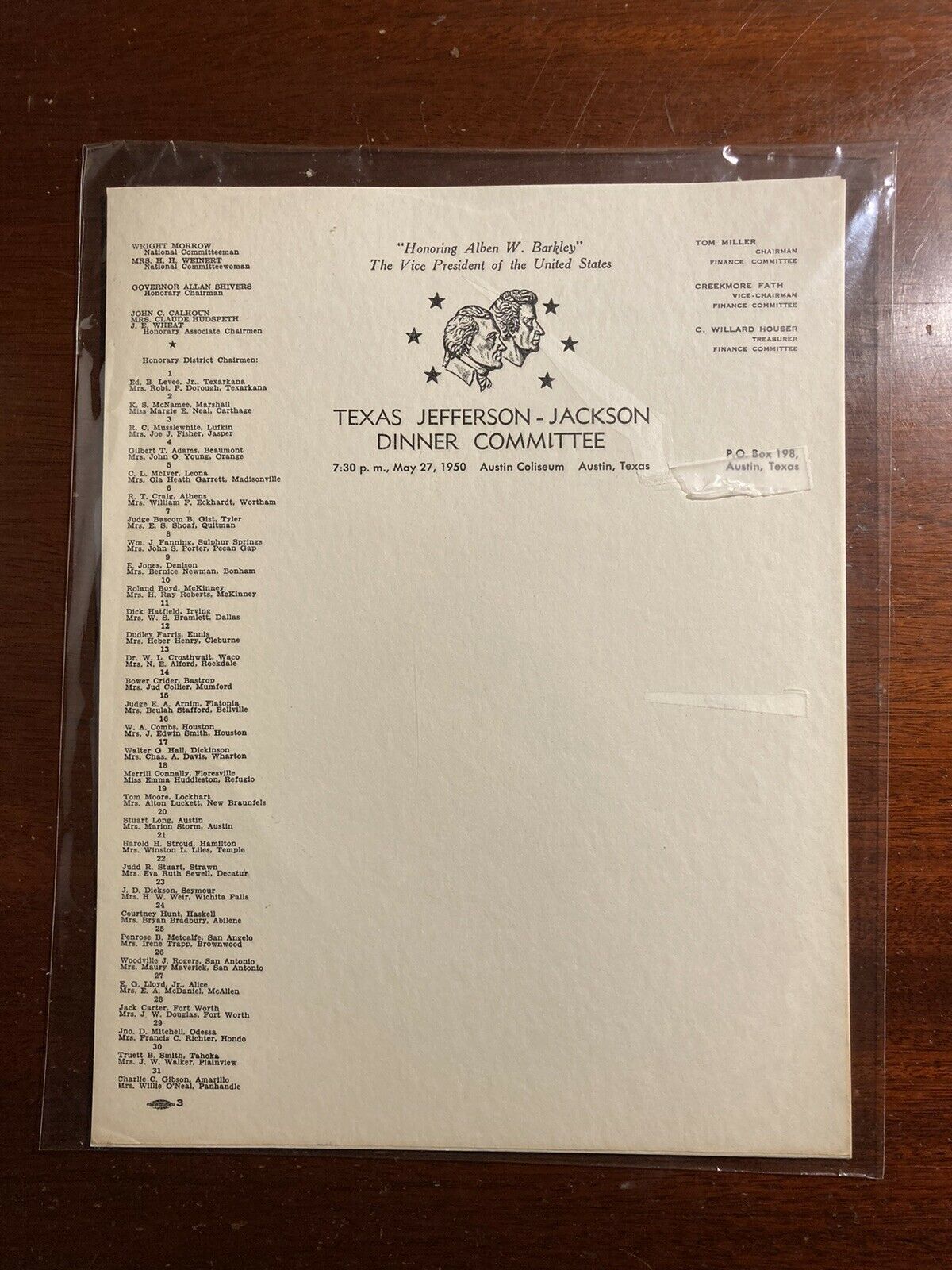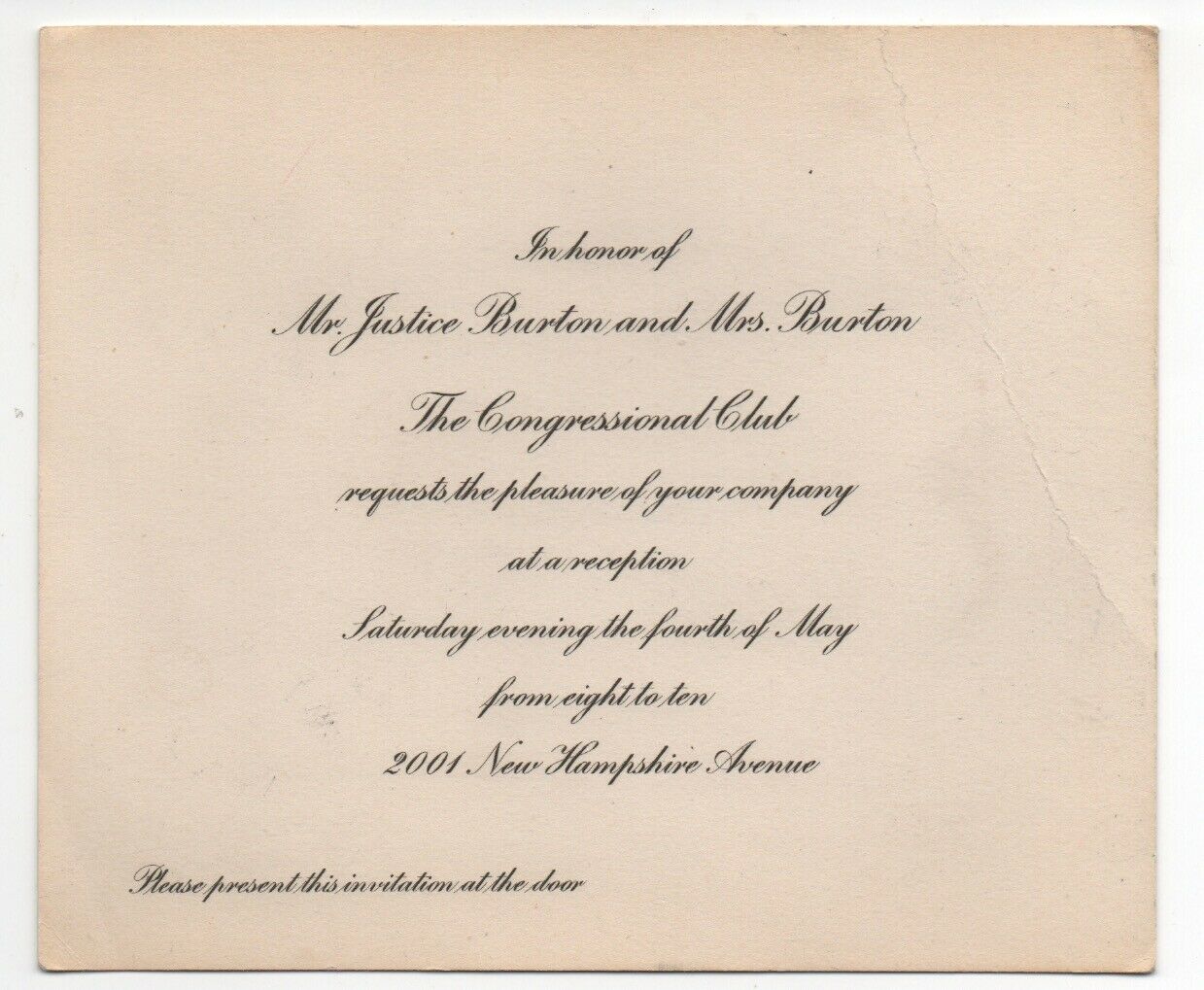-40%
60s Hate Propaganda 1964 CALIF PROP 14 Rumford Housing Act RACIAL DISCRIMINATION
$ 15.52
- Description
- Size Guide
Description
JC-3824-File60s Hate Propaganda 1964 CALIF PROP 14 Rumford Housing Act RACIAL DISCRIMINATION
This is one of many great vintage & antique items
we're currently listing from various estates. Please take
a look at our store categories and merchandise.
You are bidding on:
Rare 1964
Racial Discrimination Broadside
"An Open Letter to Apartment House Tenants"
~
Committee for YES on Proposition #14 to Abolish Rumsford Forced Housing Act
~
1964 California Elections
This is a really interesting broadside from 1964 that is impressed on heavy green paper called a "Wood Ad Mat". It was designed to be posted inside an apartment building where everyone could read it. The "Open Letter" sought to convince tenants and the general public that racial discrimination by landlords was good. Written from the perspective of a "Landlady".
The piece has survived in remarkable condition and offers a rare insight into California politics in the 1960s. It's clever propaganda that almost seems laughable now if it weren't so seriously alarming.
To better understand "Prop #14" I encourage you to read what I lifted from Wikipedia:
~ * ~ * ~ * ~ * ~ * ~ * ~ * ~
The Rumford Fair Housing Act was passed in 1963 by the California legislature to help end racial discrimination by property owners and landlords who refused to rent or sell their property to "colored" people. It was drafted by William Byron Rumford, the first African American from Northern California to serve in the legislature. The Act provided that landlords could not deny people housing because of ethnicity, religion, sex, marital status, physical handicap, or familial status.
In 1964, the California Real Estate Association sponsored an initiative to counteract the effects of the Act. The initiative, numbered Proposition 14 when it was certified for the ballot, was to add an amendment to the constitution of California. This amendment would provide, in part, as follows:
Neither the State nor any subdivision or agency thereof shall deny, limit or abridge, directly or indirectly, the right of any person, who is willing or desires to sell, lease or rent any part or all of his real property, to decline to sell, lease or rent such property to such person or persons as he, in his absolute discretion, chooses.
The amendment attempted to re-legalize discrimination by landlords and property owners. Following much publicity the proposition gained the endorsement of many large conservative political groups, including the John Birch Society and the California Republican Assembly. The initiative proved to be overwhelmingly popular at that time, and was passed by a 65% majority vote in the 1964 California elections.
Soon after it was passed, the federal government cut off all housing funds to California. Many also cited the proposition as one of the causes of the Watts Riots of 1965. With the federal housing funds cut off and with the support of Governor Pat Brown, the constitutionality of the measure was challenged soon afterward. In 1966, the California Supreme Court did not consider whether Proposition 14 was unconstitutional because it violated the equal protection and due process provisions of the California Constitution; instead, it held that Proposition 14 violated the equal protection clause of the Fourteenth Amendment to the federal Constitution. Gov. Brown's stance proved controversial; later in 1966, he was defeated in his bid for re-election by Ronald Reagan. Ronald Reagan was a supporter of Proposition 14 based on his view of property rights. Reagan labeled the Rumford Act as an attempt "to give one segment of our population a right at the expense of the basic rights of all our citizens." However, the case continued. The U.S. Supreme Court affirmed the California Supreme Court's decision in Reitman v. Mulkey (1967), holding that Proposition 14 was invalid because it violated the equal protection clause. The proposition was repealed by Proposition 7 in the November, 1974 election. Reitman established a significant precedent because it held that state assistance or encouragement of private discrimination violated the equal protection guarantee of the Fourteenth Amendment.
Wood Ad Mat Measures 6 x 11"
Condition:
Excellent Vintage Condition.
Please see photos for further details
Thanks for Looking and Good Luck Bidding
SW06JC
Guarantee:
I want you to be fully satisfied with your purchase. Therefore I offer a refund if this item does not meet your expectations. I guarantee the item to be as described.
Questions:
Feel free to contact me with any questions. You can use eBay's message system and I will reply as soon as I can
Powered by SixBit's eCommerce Solution
